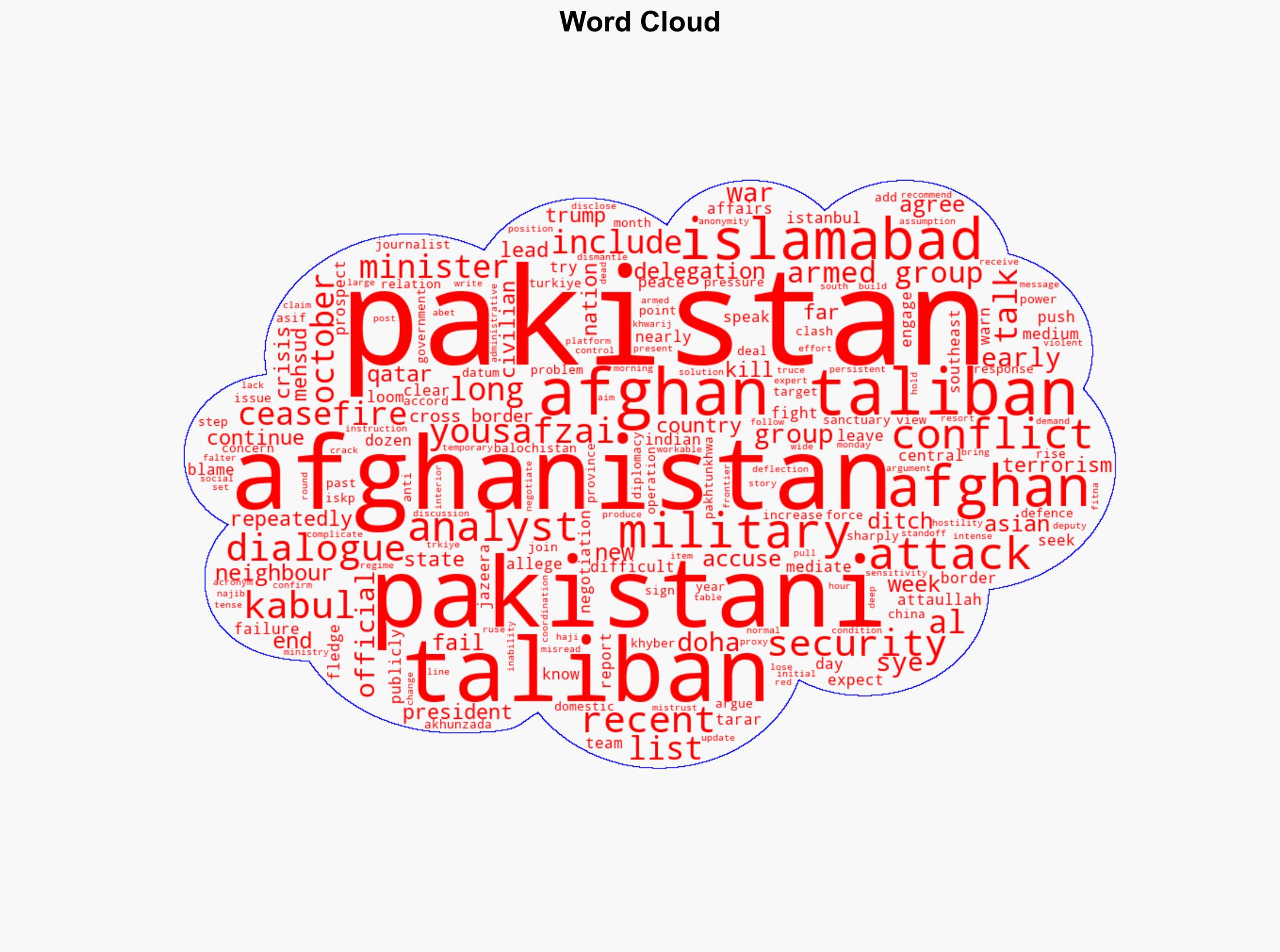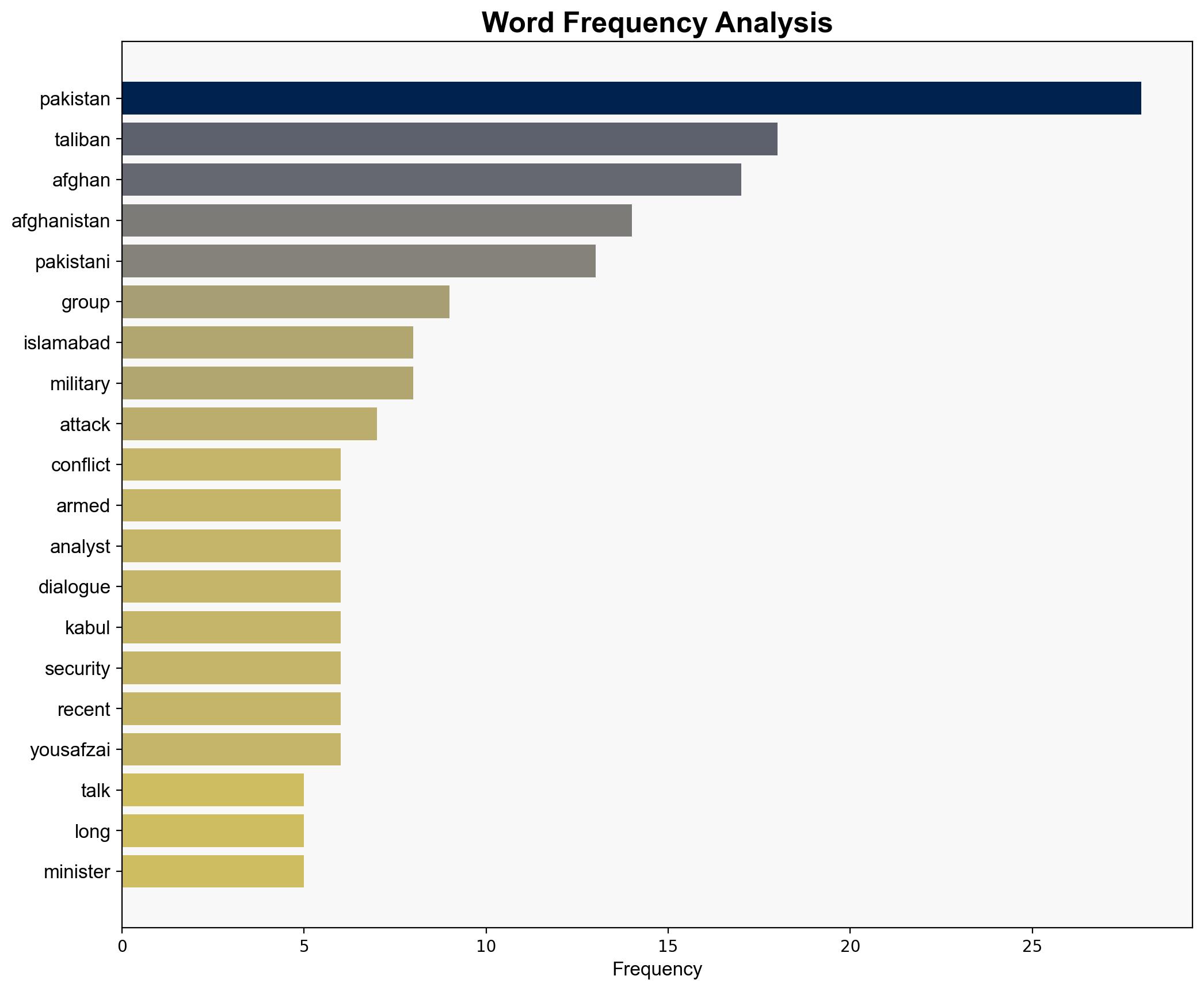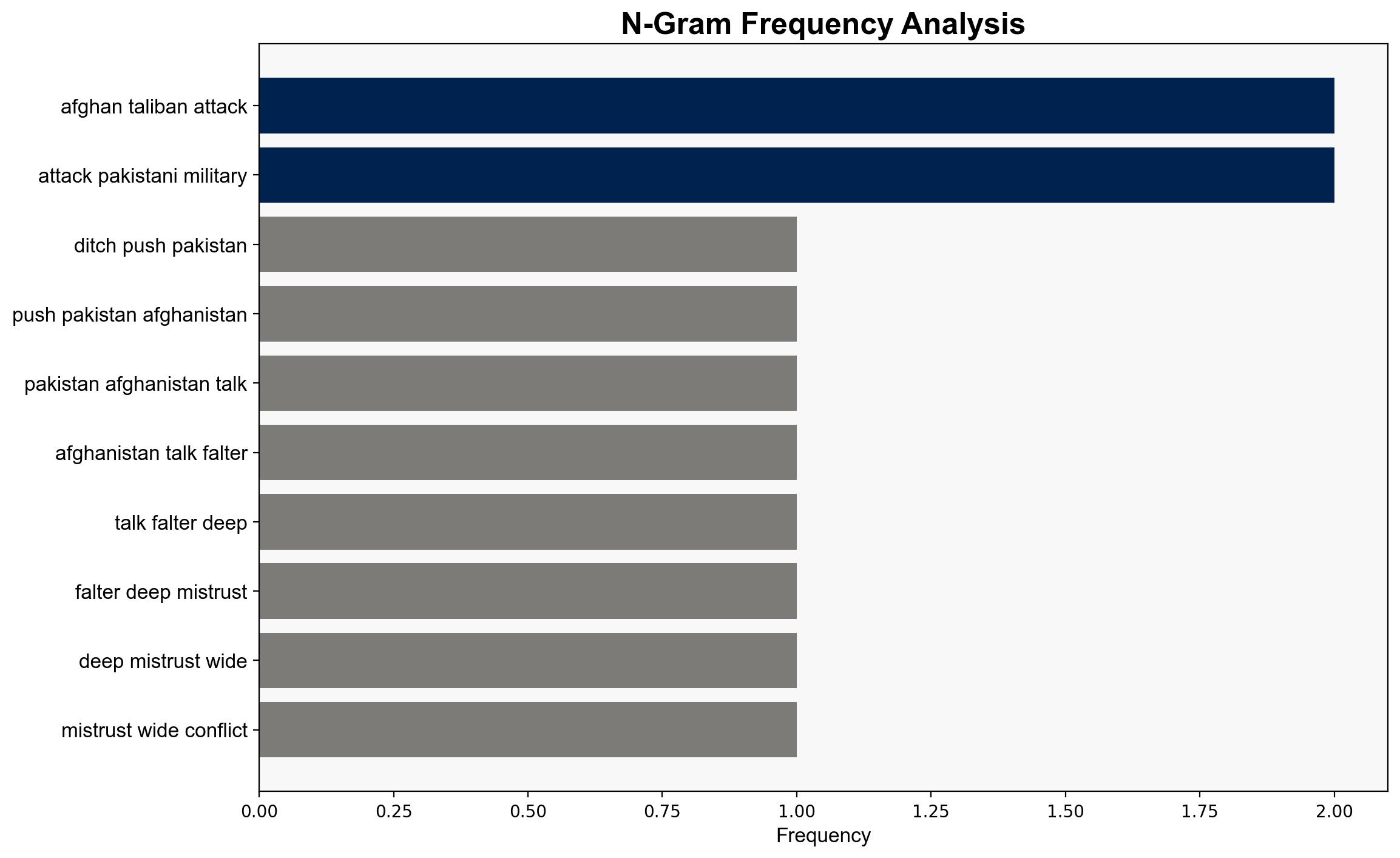Last-ditch push Pakistan-Afghanistan talks falter amid deep mistrust – Al Jazeera English
Published on: 2025-10-29
Intelligence Report: Last-ditch push Pakistan-Afghanistan talks falter amid deep mistrust – Al Jazeera English
1. BLUF (Bottom Line Up Front)
The ongoing negotiations between Pakistan and Afghanistan have stalled due to deep-seated mistrust and conflicting priorities, with a high risk of escalating into broader conflict. The hypothesis that mistrust and strategic misalignment are the primary barriers to progress is better supported. Confidence level: Moderate. Recommended action: Initiate third-party mediation to facilitate trust-building measures and establish a framework for ongoing dialogue.
2. Competing Hypotheses
1. **Hypothesis A**: The talks faltered primarily due to deep-rooted mistrust and historical grievances between Pakistan and Afghanistan, exacerbated by strategic misalignments on handling armed groups.
2. **Hypothesis B**: The failure of the talks is a result of tactical maneuvering by both parties, using the negotiations as a platform to project blame and deflect from internal political pressures.
Using the Analysis of Competing Hypotheses (ACH) 2.0, Hypothesis A is more supported by the evidence of mutual accusations and historical context of distrust. Hypothesis B is less supported as there is insufficient evidence of deliberate tactical maneuvering beyond typical negotiation posturing.
3. Key Assumptions and Red Flags
– **Assumptions**: It is assumed that both parties are genuinely interested in resolving the conflict and that external influences (e.g., other nations) are not significantly altering negotiation dynamics.
– **Red Flags**: The lack of transparency in the negotiation process and the absence of a clear, unified stance from either side suggest potential internal divisions or external pressures.
– **Blind Spots**: The role of non-state actors and their influence on both governments is not fully addressed, potentially skewing the analysis.
4. Implications and Strategic Risks
The failure of these talks could lead to increased cross-border violence and destabilization of the region, potentially drawing in other regional powers. Economic impacts include disrupted trade and increased military expenditures. Geopolitically, a prolonged standoff could shift alliances and influence power dynamics in South Asia. The psychological impact on civilian populations could exacerbate humanitarian issues.
5. Recommendations and Outlook
- **Mitigation**: Engage a neutral third-party mediator, such as Qatar or Turkey, to facilitate dialogue and build trust.
- **Exploitation**: Leverage international diplomatic channels to apply pressure for a ceasefire and humanitarian relief.
- **Scenario Projections**:
– **Best Case**: Successful mediation leads to a sustainable ceasefire and a roadmap for peace.
– **Worst Case**: Talks collapse entirely, leading to increased violence and regional instability.
– **Most Likely**: Continued sporadic negotiations with intermittent ceasefires and ongoing tensions.
6. Key Individuals and Entities
– Attaullah Tarar
– Haji Najib
– Baqir Sajjad Syed
7. Thematic Tags
national security threats, regional focus, counter-terrorism, geopolitical dynamics



